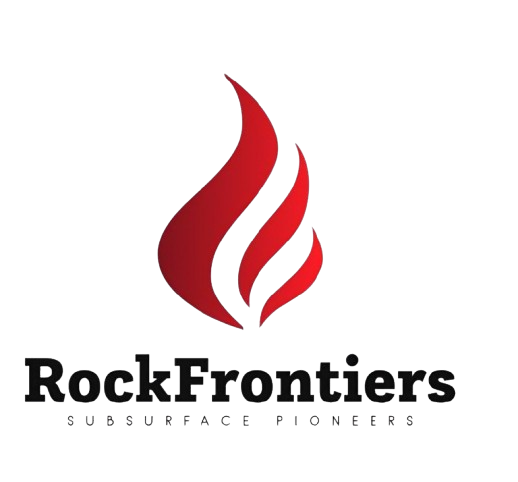Drilling Automation and Robotics
Course Overview: This course explores the growing field of automation and robotics in drilling operations. Participants will learn how these technologies are used to improve the safety, efficiency, and accuracy of drilling, including real-time data monitoring, automated drilling systems, and …
Overview
Course Overview:
This course explores the growing field of automation and robotics in drilling operations. Participants will learn how these technologies are used to improve the safety, efficiency, and accuracy of drilling, including real-time data monitoring, automated drilling systems, and the integration of robotics in well operations.
📅 Day 1: Introduction to Drilling Automation
-
09:00–09:45 – Overview of drilling automation: benefits, technologies, and industry trends
-
09:45–10:30 – The evolution of automation in the oil and gas industry
-
10:30–10:45 – ☕ Coffee Break
-
10:45–11:30 – Automated drilling systems: components and architecture
-
11:30–12:15 – Key players in drilling automation: technology providers and industry leaders
-
12:15–13:15 – 🍽️ Lunch Break
-
13:15–14:00 – Real-time data acquisition: sensors, data transmission, and monitoring
-
14:00–14:45 – Benefits of automation: increased efficiency, safety, and cost reduction
-
14:45–15:00 – Recap and Q&A
📅 Day 2: Robotics in Drilling Operations
-
09:00–09:45 – Introduction to robotics in drilling: types of robots and their functions
-
09:45–10:30 – Robotic applications: wellbore inspection, maintenance, and intervention
-
10:30–10:45 – ☕ Coffee Break
-
10:45–11:30 – Autonomous drilling systems: design, technology, and control
-
11:30–12:15 – Case study: the use of robotics in deepwater and subsea operations
-
12:15–13:15 – 🍽️ Lunch Break
-
13:15–14:00 – Robot-assisted drilling: reducing human intervention and increasing safety
-
14:00–14:45 – Advanced robotic technologies: drones, manipulators, and mobile robots
-
14:45–15:00 – Recap and Q&A
📅 Day 3: Automated Drilling Systems
-
09:00–09:45 – Automated drilling rigs: functions, systems, and architecture
-
09:45–10:30 – Automated drilling control: from traditional rigs to automated systems
-
10:30–10:45 – ☕ Coffee Break
-
10:45–11:30 – Data-driven automation: using real-time data to control drilling parameters
-
11:30–12:15 – Integration of automated systems with traditional drilling operations
-
12:15–13:15 – 🍽️ Lunch Break
-
13:15–14:00 – Case study: implementing automated drilling systems in land and offshore rigs
-
14:00–14:45 – Future of drilling automation: the role of AI, machine learning, and predictive analytics
-
14:45–15:00 – Recap and Q&A
📅 Day 4: Safety, Efficiency, and Performance with Automation
-
09:00–09:45 – Automation and safety: reducing risks and improving well control
-
09:45–10:30 – Efficiency improvements: faster drilling, reduced costs, and operational optimization
-
10:30–10:45 – ☕ Coffee Break
-
10:45–11:30 – Machine learning and AI in automated drilling: predictive maintenance and optimization
-
11:30–12:15 – Automation for real-time monitoring: remote supervision, well integrity, and diagnostics
-
12:15–13:15 – 🍽️ Lunch Break
-
13:15–14:00 – Cybersecurity in drilling automation: protecting data and operations
-
14:00–14:45 – Automated decision-making: control systems, feedback loops, and performance tuning
-
14:45–15:00 – Recap and Q&A
📅 Day 5: The Future of Drilling Automation and Robotics
-
09:00–09:45 – Emerging technologies in drilling automation: smart rigs, advanced sensors, and augmented reality
-
09:45–10:30 – The role of robotics in well completion and intervention operations
-
10:30–10:45 – ☕ Coffee Break
-
10:45–11:30 – Challenges and limitations of automation in drilling: cost, technology, and human factors
-
11:30–12:15 – Regulatory and industry standards for automated drilling operations
-
12:15–13:15 – 🍽️ Lunch Break
-
13:15–14:00 – Group activity: designing an automated drilling solution for a complex well scenario
-
14:00–14:45 – The future outlook of automation and robotics in drilling: trends, investments, and innovation
-
14:45–15:00 – Recap, Q&A, and course wrap-up
Target audiences
- Reservoir Engineers, Geologists
You May Like
📘 Underbalanced Drilling (UBD) Techniques and Safety
🎯 Course Description: This intensive 5-day program focuses on Underbalanced Drilling (UBD) – an advanced technique used to drill wells where the hydrostatic pressure of the fluid is intentionally kept below formation pressure. Participants will learn how to implement UBD …
📘 IOSH Managing Safely
🎯 Course Description: A practical, 5-day program designed to help managers and supervisors learn how to manage safety and environmental responsibilities in their teams. Emphasis is placed on identifying risks, measuring performance, and leading safely using internationally recognized good practices. …
📘 IWCF Level 3 Well Control (Surface BOP)
🎯 Course Description: This is an intensive course aimed at drilling / well service personnel needing to gain supervisory competence in well control using surface blow‑out preventers (BOP) under the IWCF standard. It covers theory, hands‑on practice, and assessments for …
Advanced Specialist Petroleum GeoMechanics
📘 Course Description: This elite-level course is tailored for petroleum geomechanics specialists and senior subsurface professionals engaged in complex field development projects. It provides a deep technical dive into stress modeling, anisotropic rock behavior, coupled geomechanical-reservoir simulation, fault/fracture mechanics, and …
📘 OSHA 30‑Hour General Industry Safety and Health
🎯 Course Description: This 5‑day course provides in‐depth knowledge of workplace safety and health in general industry sectors. It covers OSHA regulations, hazard recognition, safety programs, and industry best practices. Participants will gain the expertise needed to maintain a safe …






